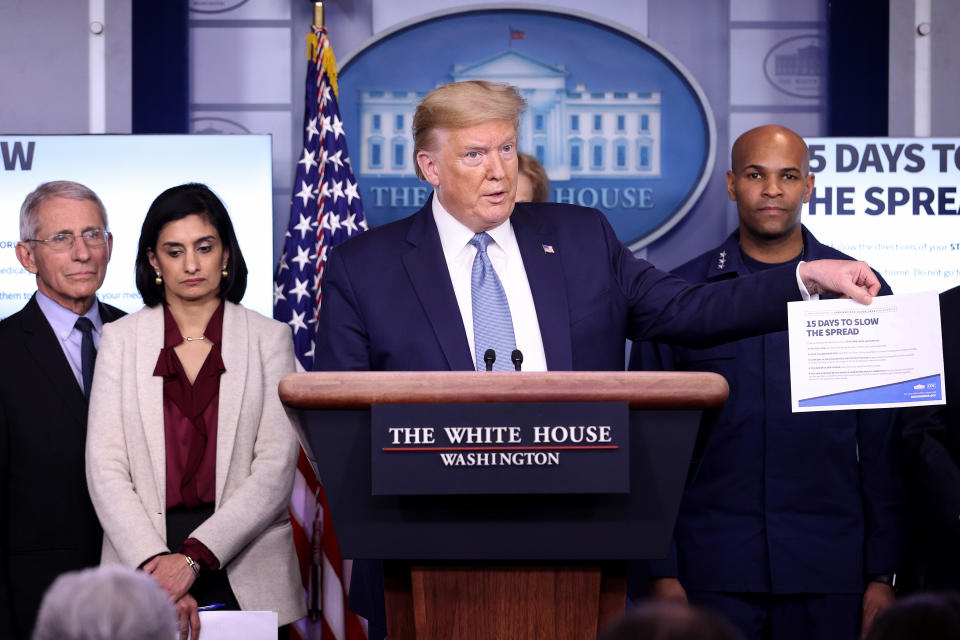Telehealth apps for coronavirus approved for Medicare. Here's how they work.

The Trump administration announced this week a “historic breakthrough” by expanding telehealth services for Americans 65 and older, the demographic most at risk of severe or fatal infection in the coronavirus pandemic. “Medicare patients can now visit any doctor by phone or videoconference at no additional cost, including with commonly used services like FaceTime and Skype,” President Trump said Tuesday during a White House press briefing.
The latest development comes as confirmed coronaviruses cases in the U.S. exceeded 6,000 as of Tuesday night. Under the expansion, Medicare will now temporarily pay clinicians who give telehealth services to patients nationwide. Telehealth is the use of electronic information and technology to support long-distance clinical health care, patient and professional health-related education, public health and health administration, according to HealthIT.gov. These technologies include videoconferencing, internet, store-and-forward imaging, streaming media and terrestrial and wireless communications.
“These services can also be provided in a variety of settings, including nursing homes, hospital outpatient departments and more,” said Seema Verma, administrator for the Centers for Medicare and Medicaid.

The move will allow more citizens to connect with doctors in less time. It’s what’s necessary to deal with the COVID-19 pandemic, says one New York City-based doctor.
“This is an opportunity to use technology, data and the remote-care setting to provide access to people in almost an instant,” Dr. Allon Mordel, an attending physician in the emergency departments of the NYU Langone Hospital and the Bellevue Hospital Center, told Yahoo News.
As an ER doctor and telehealth professional, Dr. Mordel says has seen the coronavirus crisis unfold on both sides of the spectrum: in person and via remote care. “People need health care, they need information,” he said. “And our hospitals, not just in the States but across the world, are limited and doctors’ offices aren’t infinite.”
Mordel also serves as medical director of K Health, a start-up that uses artificial intelligence to perform remote diagnostics and has launched a free coronavirus risk-assessment screening. The company says its app has been downloaded 3 million times and has hosted 5 million patient dialogues.

“What differentiates us is that our foundation is data and artificial intelligence,” said Dr. Mordel. “So if you were to google a cough, you might find every reason under the sun that the human being might have a cough. But you can’t do anything with that information. What we have done is we will tell you how, what that cough means to you. … What were people like you diagnosed with and what do they do and what treatments did they seek and how do they improve in recovery?”
It’s technology that the country needs, but Dr. Mordel doesn’t think enough people are aware of it. “I think the coronavirus and its spread is showing us a few things,” he said. “One is that diseases and viruses don’t know boundaries and borders. Medicine does not live in a silo. … And that having access to care [is] important and it’s not going to go away. [Technology can] solve the problem of having access to health care.”
_____
Read more from Yahoo News:


